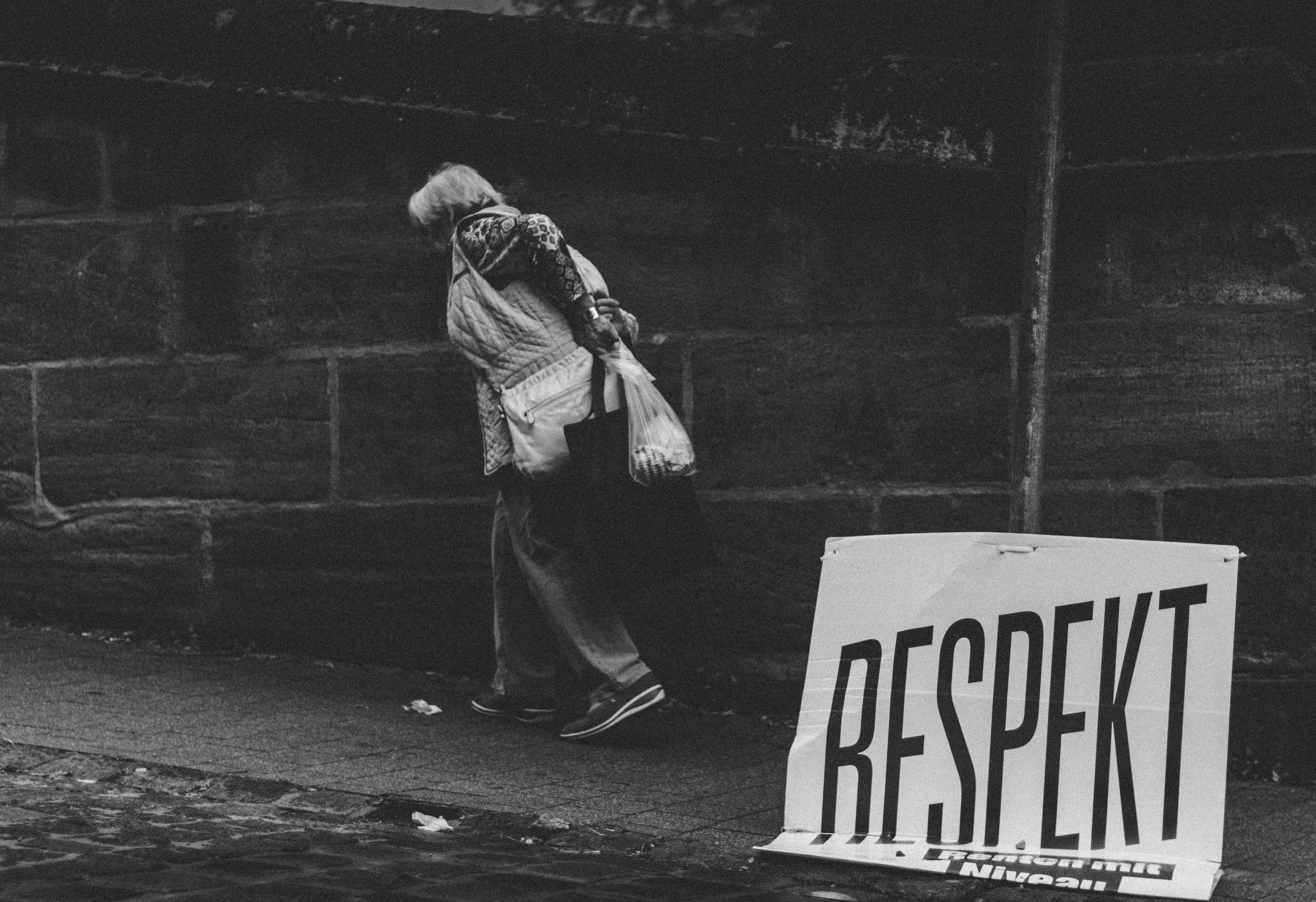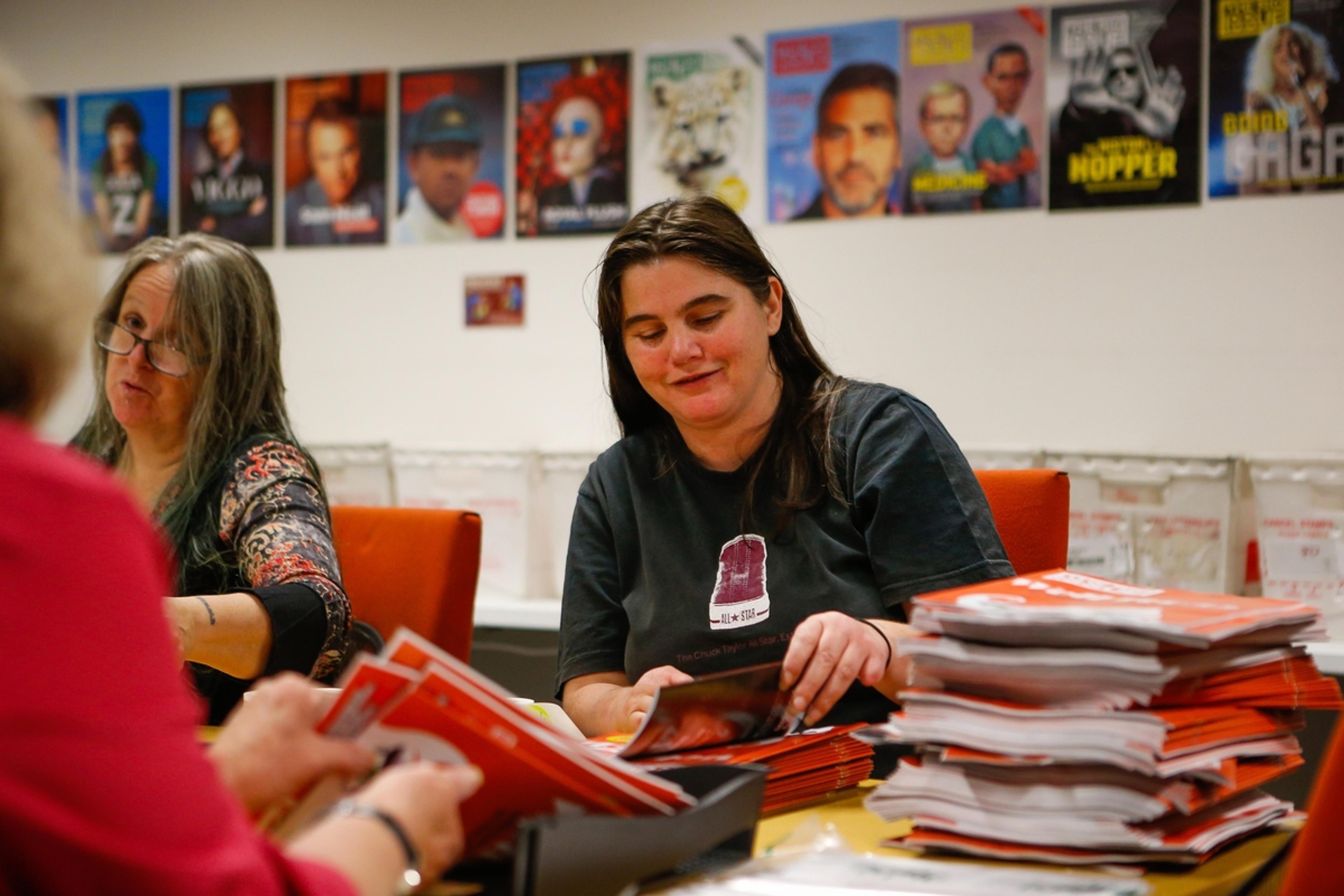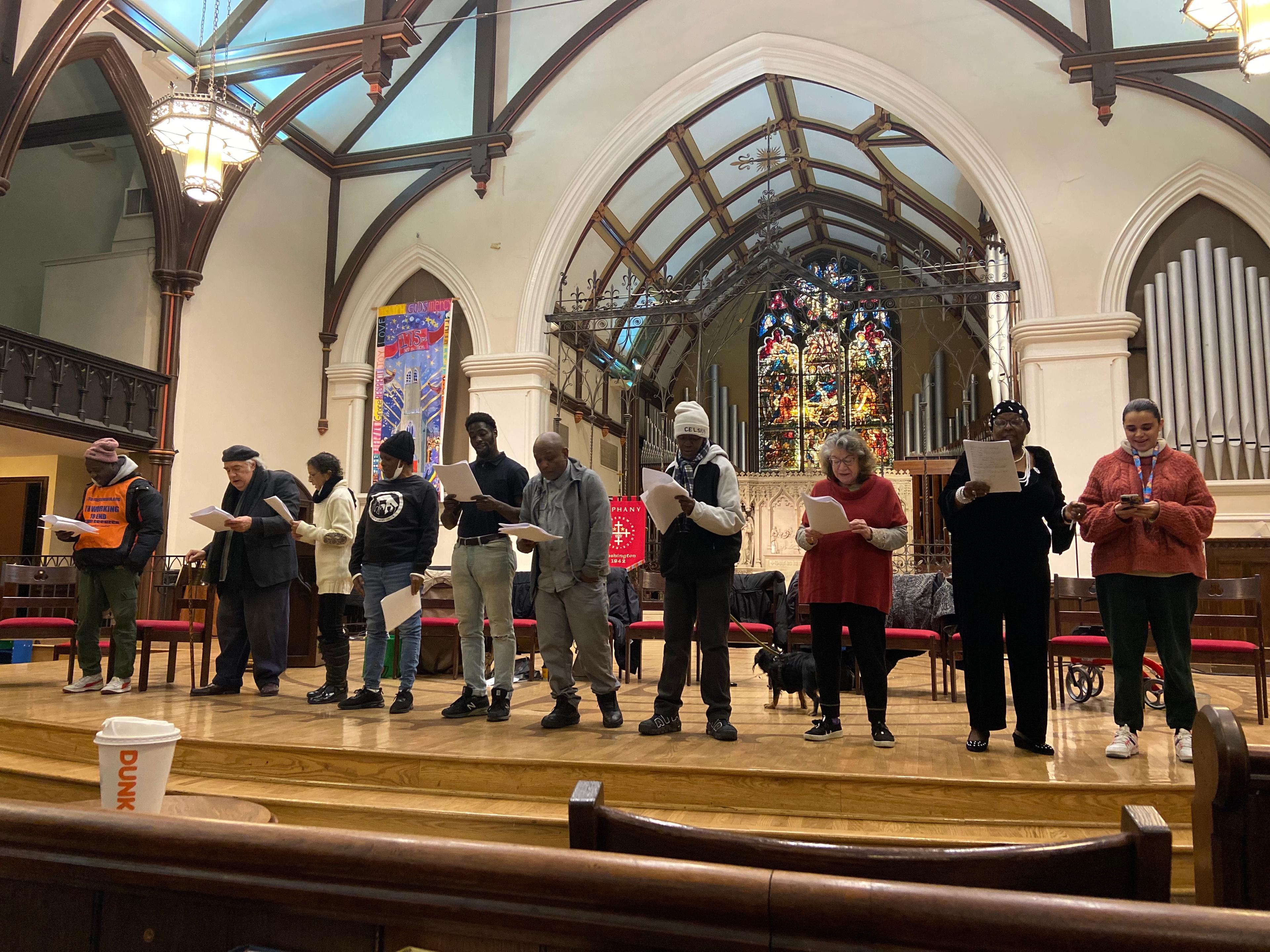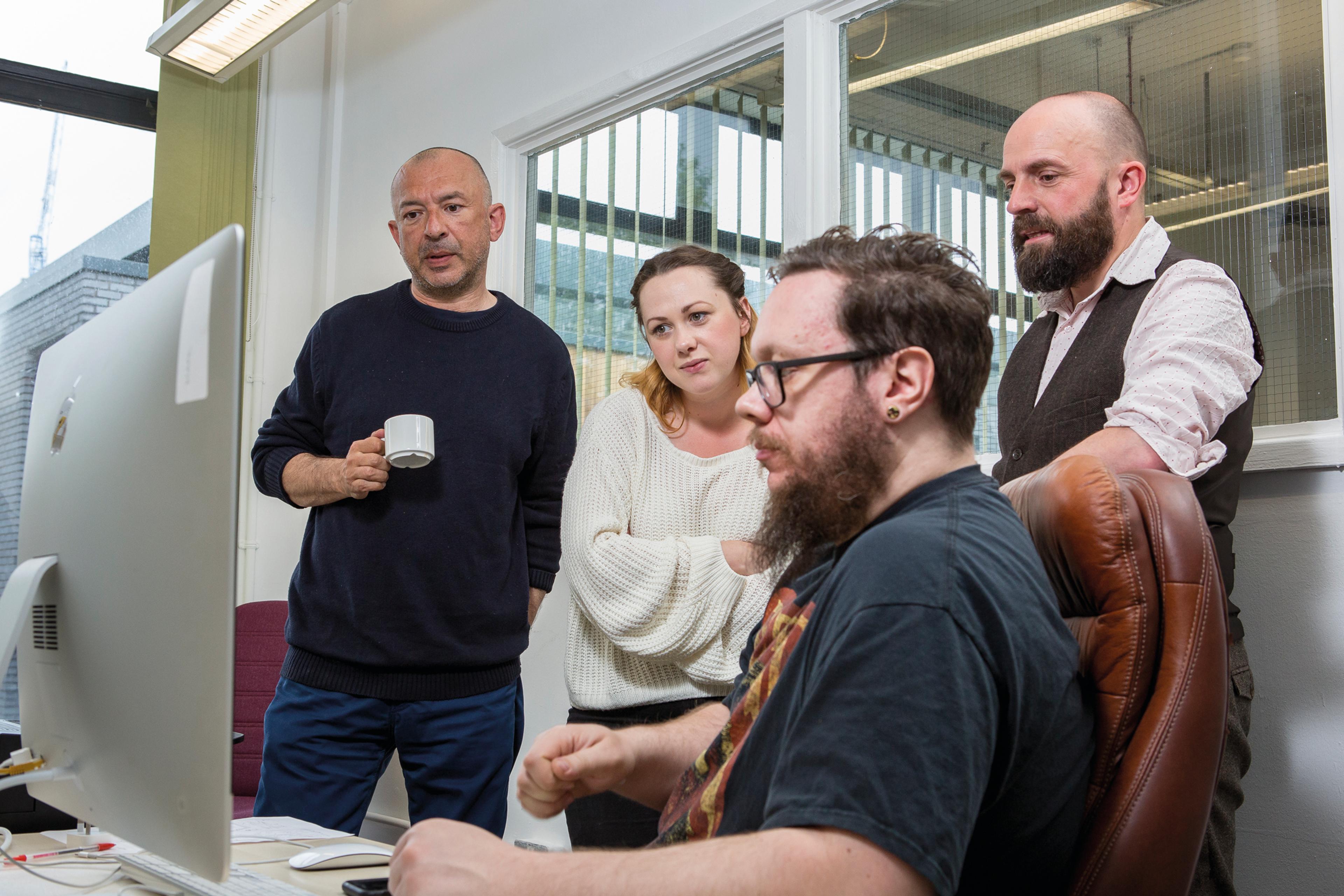We can no longer afford the rich

Photo by Arthur Yeti
Interview by Ulrich Jonas
- Street paper news

The German Federal Minister of Labour, Hubertus Heil, SPD (Social Democractic Party) has named the current state benefit the “biggest state welfare reform in 20 years”. What is your perspective on this after two years in place?
Helena Steinhaus: The aim of the reform was to treat people with more respect and on an equal footing, and to put further education and training in the foreground instead of constraints. Yet none of this has happened. There’s a nice new name, but the same stigma.
But the standard benefit rate has significantly increased.
Yes, but that was an inflation adjustment, not an increase in buying power. Beyond that, nothing has changed. People should be written to in clear and understandable language, which has not happened. Furthermore, many recipients of benefits continue to pay above that which they receive for the housing element, as they cannot find a rental at the price that the Jobcentre considers “reasonable”.
Single people receive €563 per month plus rent. Why is that too little?
Of that, €195.35 per month is set aside for food – that’s just over €6 euros per day. The benefit works out in such a way that you’re short on money at every turn. Anyone who must live on it longer term will find themself in serious financial difficulty, and many expenses are not even accounted for, for example glasses, braces, a gift or insurance costs.
What amount would you deem suitable?
The German Parity Welfare Association calls for €813 per month. I agree with this – with the addition of electricity costs, mind you, which currently have to be paid from the standard amount.
There is a repeated narrative that some low-income earners have less money in their pockets than benefit claimants.
This is clearly a lie. Low earners are always entitled to supplementary social benefits such as housing benefit, child benefit or support from the education and participation package, which they receive in addition to their salary. We should instead ask ourselves why some people are paid so little, and why those who spread these tales are not campaigning for a minimum wage protecting against poverty.
The Building Cleaners’ Guild has claimed that many of its member companies are losing employees because they would rather receive benefits than work.
There are studies that show that the number of people who have switched from working to receiving benefits has fallen recently. If this is happening to these cleaning companies, perhaps they have a problem as employers. This is besides the fact that you cannot just simply give up your job and say: “I don't feel like it anymore, I’m going on benefits.” This behaviour would be sanctioned by the Jobcentre as socially unacceptable.
Skilled workers are desperately sought everywhere. At the same time, there are almost 5.5 million people living on benefits. How can this be explained?
Of that number, only 1.7 million are actually able to work, because the others are either ill, caring for relatives or are children and young people. Furthermore, of the 1.7 million, only a proportion are available for full time employment. Many employers don’t want part-time workers. Then there's the question of suitability. Does the person have the right training; do they live nearby?
What is your opinion of the recent plans to tighten the sanctions?
That is a sham debate. We have no problem with unruly benefits recipients, as the statistics show time and time again. This increases the pressure not only on people who are receiving support, but also on people who are working. This is an area that requires much further discussion. How do people find meaningful work that they can and want to do long term? Many people need more support and that is just the reality.
Why is the narrative of lazy unemployed people living off taxpayers always so successful?
Constant repetition catches on. This narrative is by no means a new phenomenon – it has been around for centuries – nor it is unique to one country. Poverty has always been stigmatised. People are told that their situation is their own doing as that’s easier than asking ourselves, as a society, why is there such disparity? Why are the rich allowed to be unemployed and benefit from our labour as much as they want, while poor people are ostracised?
What image would you like to counter this with?
A positive one. The majority of people want to contribute something to society. Many people on benefits are committed and do valuable work, for example caring for relatives or raising children, but they are not paid accordingly.
You once had to live on state support yourself. What did you take away from that time?
I was 17 when my mother had to live on unemployment benefit. She had worked full-time as a nursery school teacher for a long time, brought up three children, and then got burnout. I could sense how stressed and overwhelmed she was with the paperwork involved and that she was afraid of the Jobcentre appointments.
Why is it that the Jobcentres often don’t help?
The laws that Jobcentre employees must adhere to are incredibly complicated and mistakes do happen. A lot of things are also a matter of judgment, and if you have the wrong person sitting at the desk, it’s just bad luck. However, the situation for Jobcentre employees is also difficult. They are under pressure from all sides: from politicians, welfare organisations, and benefits recipients themselves, all while funds are increasingly cut.
The parliamentary election is also about the question of how much welfare state we want and can afford. The CDU/CSU and FDP parties claim that social spending is exploding. At the same time, the debt brake must be adhered to, so there is no room for manoeuvre, we must make savings. What do you say to that?
My take is simply that we can no longer afford the rich.
What does that mean?
It can’t be that those who have nothing have to work their last socks off for the benefit of others. The number of billionaires almost doubled during the pandemic. We see inheritances that pass from one generation to the next virtually untaxed. Therefore, inheritances must be taxed more heavily and a wealth tax reintroduced.
Translated from German by Naomi Bruce
Courtesy of Hinz&Kunzt / INSP.ngo
You may also be interested in...

Q&A: How The Big Issue Australia is empowering women through enterprise
Read more
Street Sense Media vendors stage play exploring solutions to homelessness
Read more